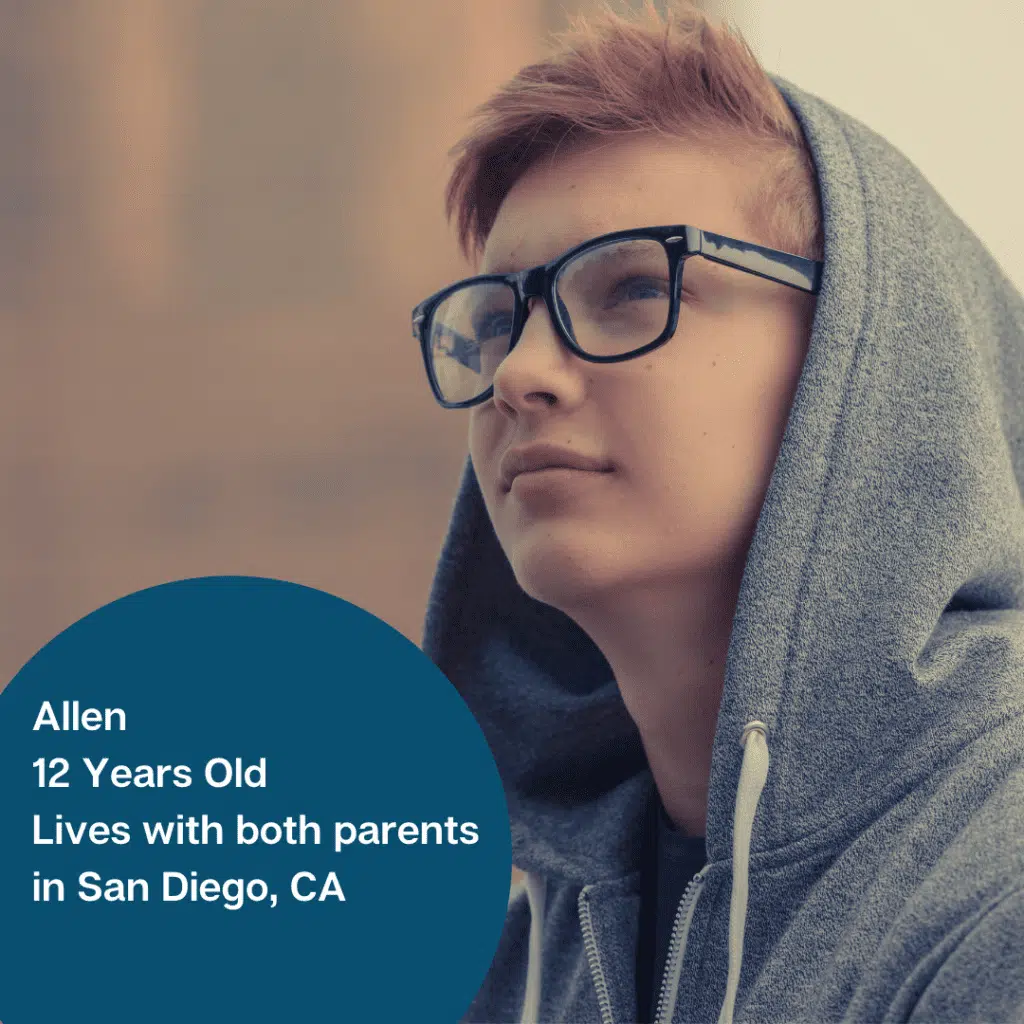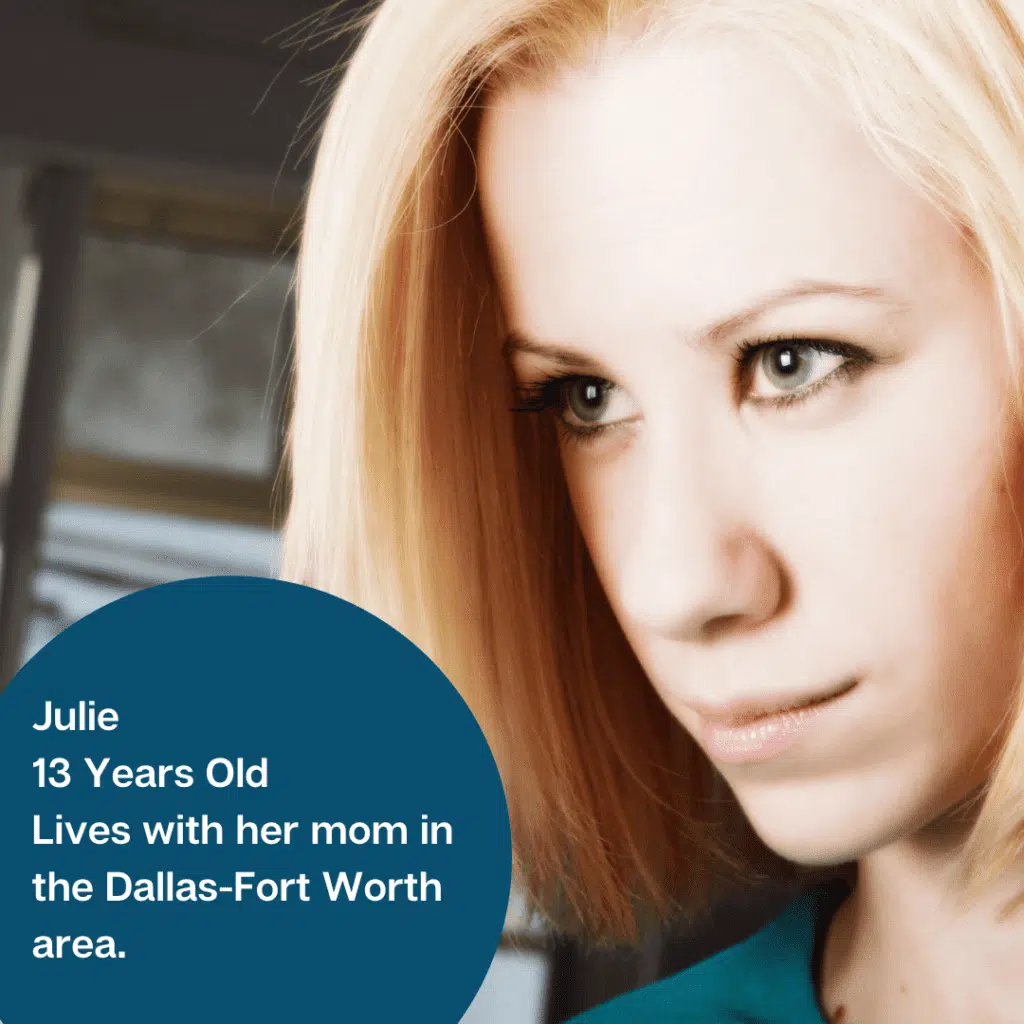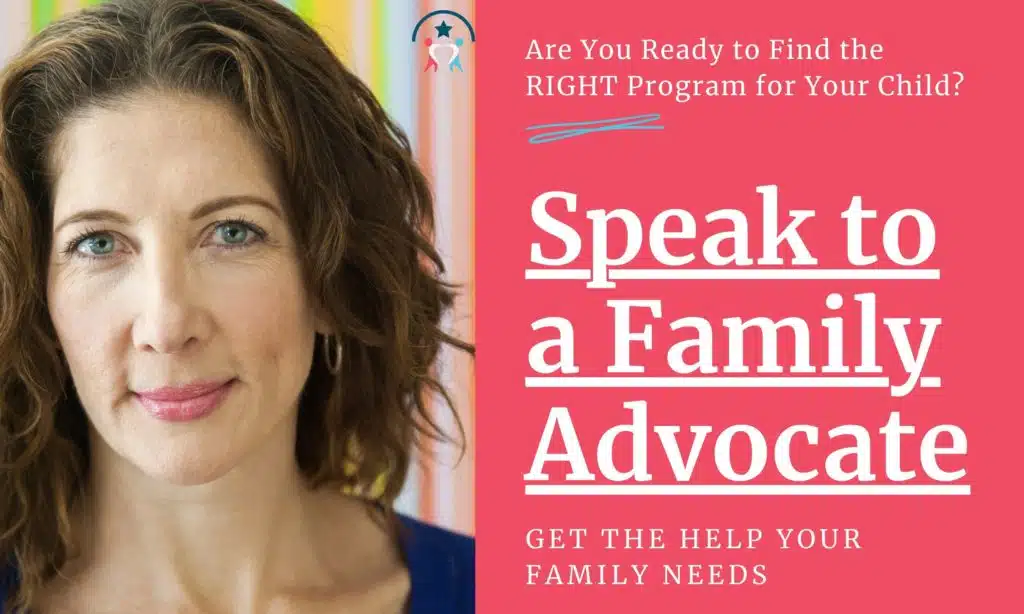What Should Parents Know About Residential Treatment Centers for Youths?
Making the decision that their child needs more than outpatient treatment for behavioral problems is both devastating and consequential to parents of a troubled teen. While outpatient programs can effectively address adolescent mental health issues such as depression, anxiety disorders and ADHD, teens with conduct disorder (CD) or oppositional defiant disorder (ODD) will likely need treatment provided by residential treatment centers for youth.
What Parents of At Risk Youth Can Expect from Outpatient Treatment
Outpatient programs for children and teens with psychological problems let them live at home while they receive therapy and counseling at an outpatient treatment center. Kids who make good candidates for outpatient treatment do not pose a risk to others or themselves and will also benefit from a home environment that supports their ability to respond positively to treatment.
Allen and Julie

Allen is 12 years old and lives with his parents in an upper-middle-class neighborhood. Allen’s parents, Mike and Jan, work full-time as managers of different organizations.
When they learned Allen was bullying a certain classmate and that he was skipping school and not doing homework, they took Allen to a child psychologist. The psychologist diagnosed Allen with ADHD and depression and recommended outpatient treatment for Allen.

Julie is 13 years old and lives with her mother and two younger brothers in a metropolitan area. Her mother is an attorney. Julie was diagnosed with depression, anxiety and self-image issues a when she was twelve.
Now, she’s been caught stealing, lying, truancy, online bullying and fighting. Due to the history of her behavioral and mental issues Julie’s psychologist recommended she be placed in a residential treatment center for troubled youths.
What are Disruptive Behavior Disorders in Children and Teens?
Residential mental health facilities are designed to treat teens with serious disruptive behavior disorders (DBDs) such as conduct disorder, oppositional defiant disorder (ODD) and intermittent explosive disorder. Although these three DBDs have some overlap when it comes to symptoms, there are some differences worth noting to help parents determine if their child would benefit from residential treatment instead of outpatient treatment.
Signs of Oppositional Defiant Disorder
The Diagnostic and Statistical Manual of Mental Disorders (DSM-5) lists the following criteria for ODD:
- Loses temper easily and frequently
- Easily irritated by others
- Resentful and angry for no reason
- Argues with/defies parents and authority figures
- Deliberately annoys/aggravates others
- Blames everyone else for mistakes, getting in trouble, academic problems, etc
- Often vindictive towards others whom the teen blames for their problems. For example, a teen with ODD may puncture all four tires of their parents’ car because he is angry for being grounded
In some cases, kids with ODD will only display behavioral issues in specific settings. When a teen acts out at school only, but not at home, they may be diagnosed with mild ODD. Teens acting out at home, at school and other settings will likely be diagnosed with moderate to severe ODD.
Signs of Conduct Disorder
Like kids with ODD, kids with conduct disorder also break rules, defy authority and lose their temper easily. However, the difference between ODD and conduct disorder involves the severity of clinical features that characterize conduct disorder. In addition, conduct disorder behavior usually begins affecting children at a younger age, sometimes as young as five or six years old.
Children with conduct disorder will:
- Bully, threaten, start fights and intimidate others (verbally, physically or with objects)
- Physically harms animals, siblings and peers
- Force themselves sexually on siblings or peers
- Skip school frequently/refuse to do homework
- Refuse to obey parental limits (won’t do chores, stays out all night)
- Abuse drugs and alcohol
- Run away from home
- Destroy other people’s property
- Intentionally set fires
- Engage in criminal activity (shoplifting, burglary, auto theft, aggravated robbery)
Signs of Intermittent Explosive Disorder
Kids with intermittent explosive disorder (IED) often benefit from outpatient treatment when IED is addressed in its early stages. Children and teens may have IED if they:
- Have intense, sometimes sudden outbursts of aggressive, uncontrollable or violent behavior
- Start physically fighting with others when they have an IED episode and cannot be calmed down
- Overreact to minor disturbances by having “meltdowns”. A teen with IED may start throwing household objects or punch holes in the wall if a peer does not want to date them. Likewise, a 10 year old with IED may have an extreme temper tantrum if they are not allowed to have ice cream for breakfast.
IED outbursts can happen with no warning to parents or teachers. After an IED episode, the child is usually embarrassed and apologetic for the outburst. It usually takes about 30 minutes for a child to “come down” from an outburst. They genuinely do not know why they act the way they do after an outburst.
What Can Residential Mental Health Facilities for Troubled Youth Provide that Outpatient Treatment Programs Can't Provide?
Parents of children and teens with disruptive behavioral disorders should consider placing their child in a residential treatment program when their child begins exhibiting behavior that is a danger to themselves and others or when outpatient treatment has been tried but was unsuccessful.
The strongest benefit of residential treatment is the secured, supervised environment in which a child can receive counseling, therapy and crisis intervention help 24 hours a day, seven days a week. Residential treatment centers for youth are staffed by highly trained therapists, counselors and psychologists who have years of experience working with kids diagnosed with behavioral problems. In addition, once their child is safely entered into a residential treatment program, most parents rest easily knowing their child is safe and receiving exceptional care 24/7.
Additionally, residential treatment centers perform comprehensive psychological and cognitive assessments of kids entering their program to precisely address their unique behavioral problems and emotional needs.
If a child is dual diagnosed with other mental health issues like major depression or bipolar disorder, the staff at these residential treatment centers for youth are fully capable to treat these issues appropriately.
Improving self-esteem, learning how to manage feelings of anger and resentment and the importance of physical wellness are also emphasized in residential treatment programs.
Unlike outpatient treatment, residential (inpatient) treatment encourages the development of a therapeutic alliance between therapists and their clients.
Therapists use a variety of nonverbal and verbal techniques to carefully construct a trusting, honest relationship with clients.
Validating a client’s feelings, thoughts and expectations is one technique therapists employ when trying to establish a therapeutic alliance. In fact, there is a mountain of evidence proving that successful treatment outcomes almost always depend on the development of a strong therapeutic alliance between clients and their therapist.
Get Help for Finding the Best Residential Mental Health Facilities for Your Troubled Child
Making the decision to place a child in a residential treatment center specializing in youth behavioral problems is one of the most difficult and distressing decisions any parent can make in their lifetime.
We offer experienced help navigating and coping with the many challenges parents encounter along the way towards finding the right treatment center for their child or adolescent.
Please contact us today to learn more about the many advantages to youth-oriented residential treatment centers.













